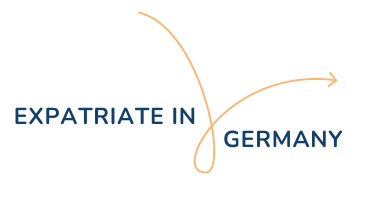Children
Children
School is mandatory for children from the September after their 6th birthday. Primary school children (normally) have to visit the school in the district they live in (the so-called Sprengelschule). Of course, parents can decide to send their children to a private school or try applying for admission to a public school in a different part of town.
After four years at primary school (six years in Berlin and Brandenburg), children move on to one of the types of secondary school: Mittelschule (kind of Junior High), Realschule (Secondary Graduation School) and Gymnasium (Grammar School). As the responsibility for the German education system lies primarily with the states (Länder) you will find slightly different school systems depending on which federal state you move to.
Traditionally, children are only at school until midday and go home for lunch. However, more and more schools are offering lunch and additional afternoon lessons or childcare. School uniforms are not worn in German schools, only in very rare exceptional cases or some international institutes.
Especially the large cities also have a wide variety of international childcare and education possibilities for children of all ages. Apart from the private institutions, also some of the municipal/state-run schools have started offering bilingual lessons. Detailed information is often available on the education pages of the city’s website. Here you will also find information on day care for younger children.
Before starting school, children in Germany normally go to kindergarten for 3 years. Kindergarten is not mandatory, and a monthly fee might be applicable. Children under the age of three go to Kinderkrippe (day nursery). Also here, a monthly fee may apply. Fees for Kinderkrippe and Kindergarten can be anything between EUR 0 and EUR 1,000 per month, or even more, depending on the type of day care and what they offer (public or private, bilingual education, music education, long hours, overnight care etc.).
We
highly
recommend to complete home search first since registration for primary schools and also Kindergarten/Kinderkrippe can only be completed having local residence registration done in many cities.
If you are registered in Germany and have a valid work and residence permit, you can be eligible to apply for Kindergeld for children under the age of 18 or under the age of 25 if they are still in full-time education. Please be aware that you can also apply for German Kindergeld even if you are still eligible for child benefit in your home country. If Kindergeld is higher that the child benefit you receive from your home country, you might then be eligible to the difference. Application forms are available at www.familienkasse.de and must be submitted to your local Familienkasse. The child benefit is offset against the child allowance in the tax.
Kindergeld is paid as follows:
Parental benefit is an important source of support for families in the first twelve months of their child’s life. The reference period is increased by another 2 months if the care time is divided between both parents (e.g., mother 6 months, then father 8 months). It is not relevant whether the child was born in Germany, but the support is only paid for the months in which the family is registered in Germany. The benefit cushions the loss of earnings after the birth of a child. Parental benefit consequently makes it easier for mothers and fathers to take a break from or cut down on paid work in order to take time for a child.
The amount of support is based on the level of income earned within the EU (plus Iceland, Liechtenstein, Switzerland and Norway) during the last 12 months and amounts to about two-thirds of average earnings. The minimum rate is 300€, the maximum rate is 1800€.
Mothers and fathers can claim parental benefit if they:
Please note:
